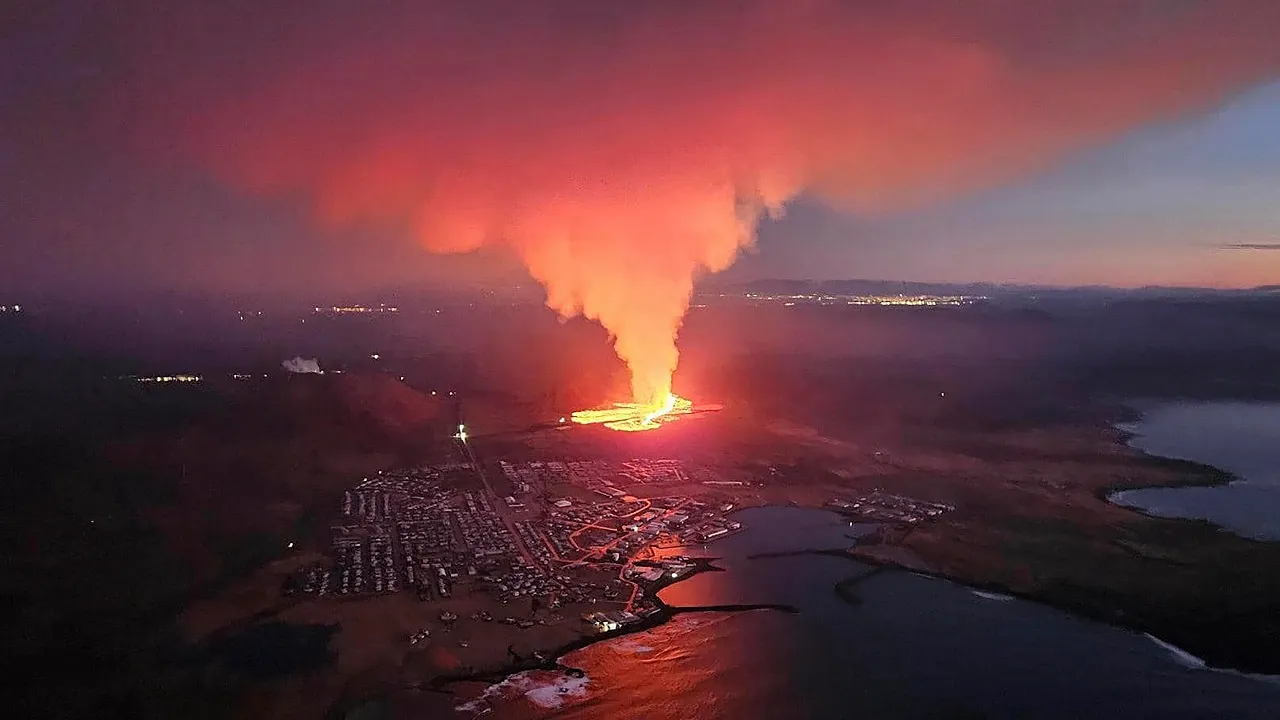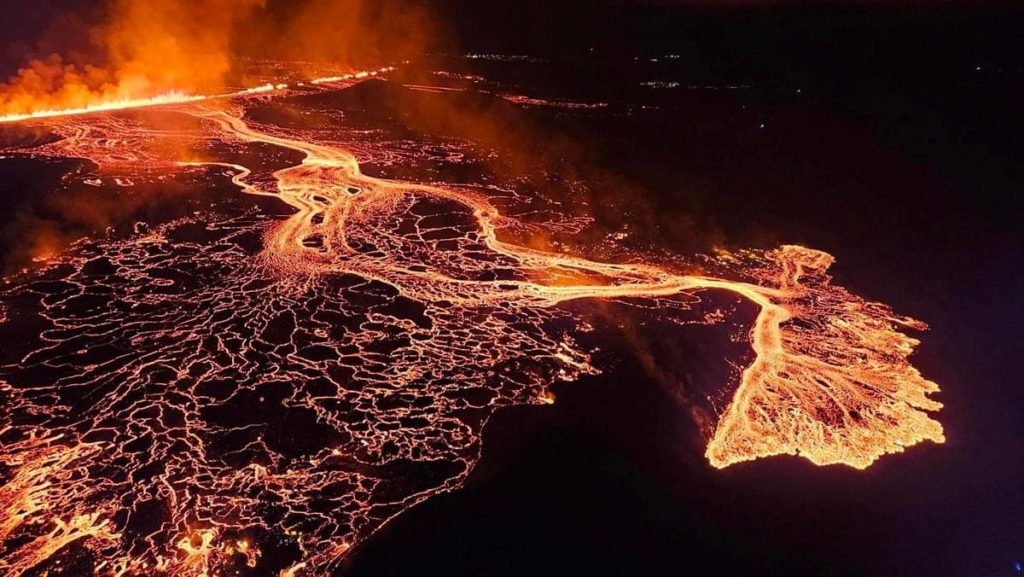A volcano in southwestern Iceland erupted again on Tuesday, continuing a series of eruptions that began more than a year ago. The eruption sent lava and smoke into the air, prompting authorities to evacuate the last remaining residents of a nearby fishing village. The eruption started at 9:45 a.m. local time, setting off warning sirens in the town of Grindavik. Webcams captured molten rock spewing towards the community, though activity had subsided by late afternoon, according to Iceland’s Met Office.
Emergency Evacuations Underway as Officials Urge Residents to Heed Volcanic Warnings
As a precaution, police and civil defense officials evacuated Grindavik and the Blue Lagoon geothermal spa, a major tourist attraction. An early morning earthquake swarm had signaled the likelihood of an imminent eruption. The town had already been mostly evacuated in November 2023 when the volcano reawakened after being dormant for around 800 years. On Tuesday, about 40 homes were evacuated, though some residents chose to stay despite official warnings.

Authorities expressed concern over those who refused to evacuate, highlighting the risks to emergency responders. South Iceland’s police commissioner, Úlfar Lúðvíksson, urged people to consider the safety of the 50 personnel involved in the evacuation, many of whom were volunteers. Despite official warnings, some residents preferred to remain in their homes, increasing the potential danger in case of further volcanic activity.
Iceland’s Volcanic Past and Future: Ongoing Threats and Safety Precautions Remain Critical
Iceland sits on a volcanic hotspot in the North Atlantic, making eruptions a common occurrence. The country has a history of significant volcanic events, the most disruptive in recent times being the 2010 eruption of Eyjafjallajokull. That eruption spewed massive clouds of ash into the atmosphere, leading to months-long disruptions in trans-Atlantic air travel. However, Tuesday’s eruption did not impact flights.
Authorities and geologists continue to monitor the situation closely to assess any further risks. While the immediate eruption has subsided, Iceland’s Met Office warns that activity could persist, given the region’s volcanic nature. The repeated eruptions over the past year suggest that the area may remain active for an extended period, requiring ongoing safety measures and preparedness for potential future evacuations.


